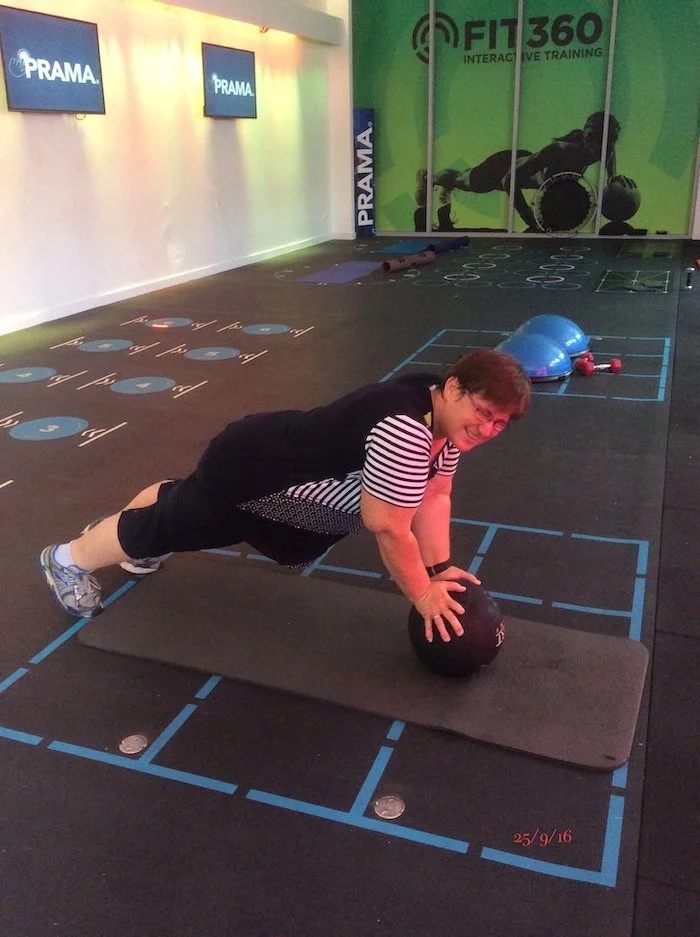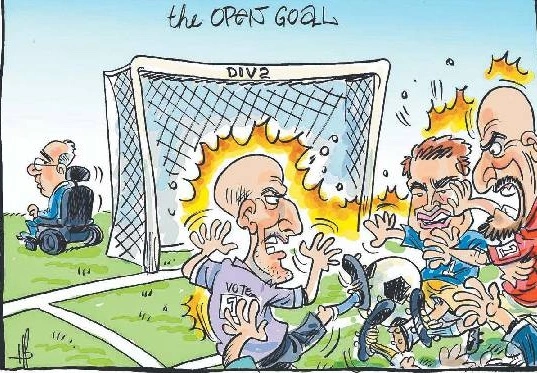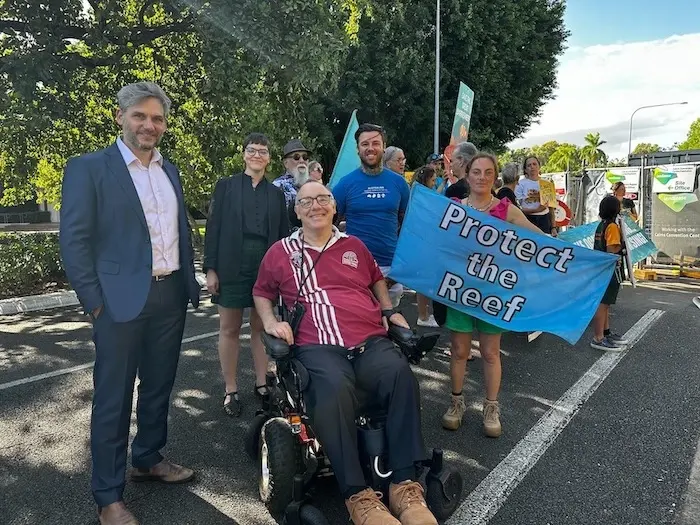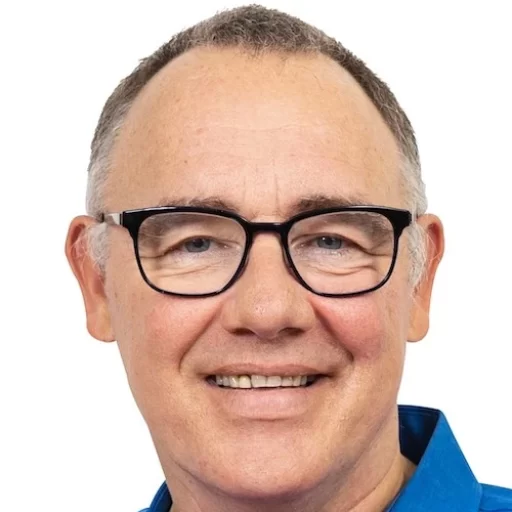Table of contents
Decline of Mr. and Mrs. Pyne
Jenny Pyne and I had both reached 50 years of age and had while I had become active on Council again, Jenny had focussed on her health and fitness.
There is medical literature discussing the experience of ageing with a disability. However, it doesn’t adequately capture the ‘human side.’ In April 2022, I turned 55 years of age.
When I broke my neck in 1991, statistics showed the average life expectancy for a young man who sustained such an injury (at the age of 23) was about 49 years. I had already lived longer than what I called my ‘disability adjusted life expectancy.’ Science and improved care under the new National Disability Insurance Scheme (NDIS) had increased both life expectancy and quality of life for people with disabilities generally.
However, ageing with a disability had taken a toll. The biggest thing I noticed was a decline in energy. There were also issues around my bladder and bowels. In addition, my bones were starting to break more easily. While these breaks were all in parts of the body I could not use, they did cause difficulties for me. These increased muscle spasm.
Jenny Pyne

Jenny and Rob Face Harsh Reality
As 2021 concluded, Jenny and I faced harsh realities. Jenny was notified that she would need to go on dialysis in the New Year. This also meant that Jenny would go on the kidney transplant list.
Jenny had cared for me – got me up and about, looked after me – every day for 30 years. Now I was worried what would happen to her. I overheard Jenny confessing to one of my support workers that if she needed to go to Brisbane for a must-have kidney replacement, she just wouldn’t go unless she had someone she trusted to look after me
While Jenny’s commitment to me was admirable, I was determined that she would get the care she was entitled to. It was the least I could do after all the years of love and care she had provided to me. With this in mind, my support worker Maja Betts and I started training up staff who would be able to get me up and bath me every morning and get me in my wheelchair.
Jenny Pyne: Life is a Workout
Jenny’s kidney’s may have been failing, but in every other way she was fitter than ever.
During the time following Katherine’s birth in 1998, Jenny had become morbidly obese. I expressed concerns regarding her health, but this was never well received. This remained the case right through to Kate’s final year of high school. It was that year while, I was serving in the state parliament that Jenny finally decided to do something about her weight and health.
During those long days in Brisbane, Jenny would have sessions in the Parliamentary gym, which showed she was actioning her commitment to lose weight. Indeed it became her passion!
After I lost my job as a MP I became a bit lost regarding what my purpose in life was. Jenny, on the other hand, had joined the local gym and become part of a fitness community where she was celebrated and valued. Indeed, Jenny Pyne was losing kilos every month. After some time she had lost 60kg, which was an amazing achievement.

Kidney Failure
I also found I was not as intellectually quick as I have been in the past, perhaps partly the result of my experience with drug addiction and almost certainly as a consequence of ageing.
However, far more concerning to me was the bad news in relation to Jenny’s health. While she had lost weight, grown stronger, and was going to the gym every day, Jenny had to face the tragic news that her kidneys were failing. It had always been my intention to exit this world prior to Jenny, and her health and well-being was important to me. I had no desire to live without her.

Death Comes Calling
On the morning of Saturday, 30 July 2022 I awoke and heard Jenny turning my heater on and walking to the bathroom. I heard a loud crash and then nothing. A few seconds later, my mum (who was sleeping over), came into my bedroom. “It’s Jenny, Robert, its Jenny, she’s fallen over.” Mum and I were frantic. We called an ambulance and then we called my support worker Maja who was on her way to the house.
The paramedics came to Jenny’s aid. It sounded like she was semi-conscious. The paramedics were prompt, professional and took her straight to hospital. After I was up and dressed, I received another phone call asking me to come straight to the hospital. I knew this was not good.
When I arrived at the hospital, I was taken into a small room. Two doctors, one male and one female entered the room. I can still remember the woman saying to me “Jenny died and we don’t know why”. The doctor explained there was swelling around her heart and that while they were trying to drain the swelling, something went wrong and Jenny died.
I was too devastated to be angry at the doctors. Also, I knew that while appearing the picture of fitness, Jenny had chronic kidney disease and it seemed to me that swelling around the heart is never good. I knew the doctors would have done their best but I just didn’t want to talk to them.
Before leaving the hospital, I was given the opportunity to see Jenny’s body. It did not feel like Jenny to me. She did not look like she was ‘just asleep’. I knew she had left the body that had been her home for 51 years. I left the hospital as soon as I could. I needed to be alone.
Life After Jenny Pyne
The grief I felt following Jenny’s death was something that is hard to describe. It can only be fully understood by someone who has experienced it. The death of a long-term partner who you love and are deeply indebted to is something that is incredibly difficult to deal with.
Naturally enough, every time you think of the person you have lost, you are consumed by grief. What makes it so hard to get out of the ‘dark place’ you find yourself, is the depth of your bonds with the person you have lost. I could not have been closer to Jenny, so grief had a big head start on me.
Part of your brain knows that whenever you think of the person, it will cause pain. So, as a survival strategy, this part of your brain pushes them to the back of your mind. This is a natural response to the incredible pain that remembering causes. However, grief simply ‘builds up’ behind the ‘dam’ your brain has created.
Just going about housework and coming across an old picture or possession brings everything flooding back and grief defeats you … yet again. Jenny loved elephants and it was remarkable to me how quickly coming across a small figurine or an old purse with elephant ears simply reduced me to tears. So any simple thought, event or trinket will bust the emotional ‘dam wall’ your rational brain has created. Then, once again, you find yourself drowned in grief.
When you have lived with someone for 30 years, adopting seemingly rational protection mechanisms to avoid grieving will always fail. They fail because you are surrounded by reminders, both outside and inside of yourself. The answer is not to seek to stay in grief permanently, but to ride the waves. A dam wall will not hold, but you can ride the waves of grief and find peace in between them.
Kate Pyne
I have been immensely proud of Katherine Louise Pyne (Kate) from the moment she was born. She was named after my grandmother Katherine Hannah Pyne. My grandmother was a very strong woman, known for her steadfastness and strength of character. Some of these characteristics were not ones I associated with my daughter, that was until the passing of my wife.
Following Jenny’s death, for the first time, I found myself looking to my daughter for strength and leadership. She delivered it in spades! She helped me through this hard time. In making arrangements and speaking at the funeral, Kate showed me just how strong she was.
Of all the things we had to do before Kate returned to Brisbane, it was going through Jenny’s belongings that hurt the most. Her possessions included a letter from Kate that would’ve made me cry at the best of times, but it was almost impossible for me to read at that time.
Medical Marijuana
Sleeping was a problem for me following Jenny’s death. Sleeping was something I’ve never had a problem with, but when you’re in a bed on your own and feeling alone, going to sleep is not so easy.
I organised a meeting with Dr. Singh, who was prescribing cannabis in Cairns. I had made the appointment because of the number of issues around my own physical discomfort and muscle spasm. I had long wanted to trial extended use of cannabis in a formal way at least.
Dr Singh prescribed me with cannabis oil for pain and muscle spasm. I also had cannabis flower prescribed, for use with a vaporiser. I found that vaping cannabis before bed, greatly enhanced my sleep, as did the cannabis oil which one takes in the evening to relax.
This was a case of my personal life meeting my professional life. As an MP I supported legislation for medical marijuana. Now I could consume it! Who would’ve thought at 55 years of age, I would become a ‘stoner’? In any event, it helped with pain, muscle spasm, and relaxation. That was good enough for me.
Som Tamang – An FNQ Bio
As a child growing up in rural Nepal, Som Tamang experienced poverty and child slavery. He grew up in the village of Batase in the shadow of the Himalayas. From an early age he understood the importance of education to the quality and freedoms of a happy life and set about to make changes for himself and his community.
Som experienced some of the worst that life could offer – poverty, sex trafficking, child slave labour and violence. Rather than giving up, he determined to grow strong and fight back. He recognised that much of the injustice he was witnessing, particularly with the unfair treatment of young girls, was systemic and the product of cruel out-dated traditions.
Som overcame adversity to make his way to Australia and worked hard to become financially capable of providing for his family and friends and helping his old community back in Batase.
With help from the Cairns community in Cairns, Som founded the ‘Friends of the Himalayan Children’ which has built a school in Batase village and continues to provide the opportunity for other rural children in Nepal, especially girls, to go to school.
Som’s story has been told to writer Kirsty Nancarrow in her book Himalayan Dreams. It is a great read.

Division 2 Days Over
The action by Greg Hallam and the LGAQ had become part of my life. It no longer caused me any negative emotions. However, it was always a consideration in any decisions I made. It was always there, indeed it had been going on that long that at times I did not expect I would live long enough to see the outcome.
It caused me great regret that over the four years there had been no progress on a new library or a new swimming pool for Edmonton. I felt these were both needed to service the growing southside population.
However, I had one vote on the council, not six. You always need a majority on council and the truth is I was simply unable to get other councillors to support these projects.
On a positive note, there was an increased interest in representing the area. Democracy is a good thing and heaps of people were coming forward to run for Division 2 at the 2024 council election.
Those interested included former councillor John Schilling, a local school teacher Steven Lippingwell, business owner Matthew Tickner, Kesa Strieby from the community sector and last but not least, the Cairns Unity candidate Nikki Giumelli.

The Journey Home Without Jenny Pyne
I had never believed I would live past the age of 55. As I aged there was no denying aging had made things more difficult. With breathing difficulties, broken bones, infections, and pressure sores, there was no doubting life for me was harder than ever before.
Without Jenny by my side, I felt even more vulnerable than ever. However, fate saw me connect a group of dedicated support workers, to help me in my final years, which I call my ‘journey home’.
Without these three women I would not have survived. Maja, Bec and Christina gave me conversation, care and love. They kept me alive. The diminutive Maja Betts was the lynchpin.
Maja Betts
Maja Betts was born in the small country town of Cheviot, on the east coast of the south island in New Zealand. A daughter of a Principal who had spent time growing up on a farm, Maja had acquired the skills of leadership and a practical approach to problem solving.
Maja started helping me while Jenny Pyne was still alive and learn how to care for a quadriplegic from her. Unbeknownst to me, she promised Jenny she would care for me if anything happened to her.

Christina Kelly
I first met Christina Kelly when she started to care for me as a support worker. Over time I came to value her kind and gentle nature and regard her as a best friend.

Bec Dann
Bec grew up in Melbourne and trained as a chef. Her parents moved to Cairns and Bec later followed with her family. She was an amazing comfort to me after Jenny died. Bec was an emotional support but also my number one cook.
People like Bec give your mind and heart a reason to live and by cooking amazing meals she provided my body the means to continue, even when I didn’t feel like eating.

My friend, Simon continued to help me for a few hours every week. Our relationship had lasted 30 years, which was a reflection of our bond. Other support workers who assisted me over the period included my wonderful Australian Punjabi friend Cheema, my friends Anna and Rebecca.
Champion of the Underdog
You don’t have to be a politician to be involved in politics. Indeed it is only when ordinary people get political that you can achieve real social or economic change.

My disability made campaigning online a great option. Not wanting to be just another ‘keyboard warrior’ I studied the ins and outs of keyword research and found some useful SEO tools to ensure the large amount of content I had produced was seen online.
Life After Jenny Pyne: Tropical Gardening
Tropical gardening was an area of interest and learning for me. It became a big part of my work. It may take others a while to make the connection, but for me gardening was inherently political.
From first reading about the Dig for Victory campaign that was so useful in fighting Nazis, to watching the legendary socialist Peter Cundall on Gardening Australia, gardening was political from the get go.
Gardening is a great way to reduce your dependance on big multinationals like Coles and Woolworths. It is also a great way individuals can make a practical daily contribution to the fight against climate change.
This was all well and good, but following the passing of Jenny Pyne I had deep inside myself a sense of ’emptiness’ that I knew would never come to pass.
- Far North Queensland
- Growing up in Australia
- Aboriginal and Torres Strait Islander People
- Queensland Political Culture
- Princess Alexandra Hospital Spinal Unit
- People with Disabilities
- Cairns Regional Council
- Conservative Cairns Council
- ALP Qld
- Abortion Law Reform
- Fighting Fossil Fuel
- Local Government Corruption
- Losing to Labor
- My Cairns Council Return
- Council Mayors Silencing Dissent
- Socialist Alliance and Fighting Fascism
- Jenny Pyne, Life and Pain
- Cairns Council Members Swing Right
- Fightback and Farewell

